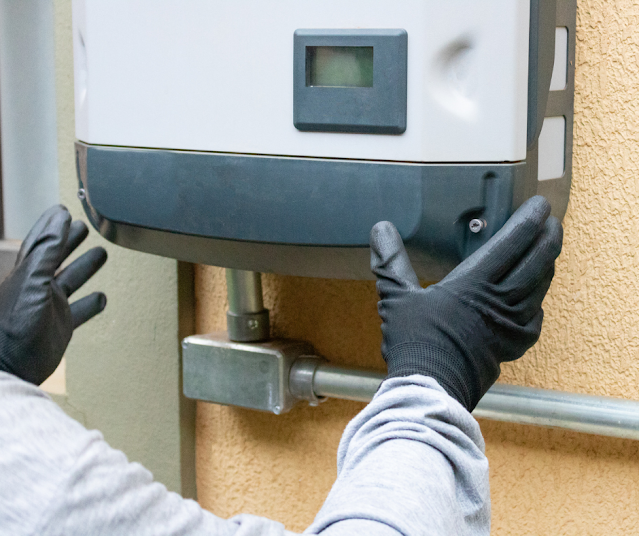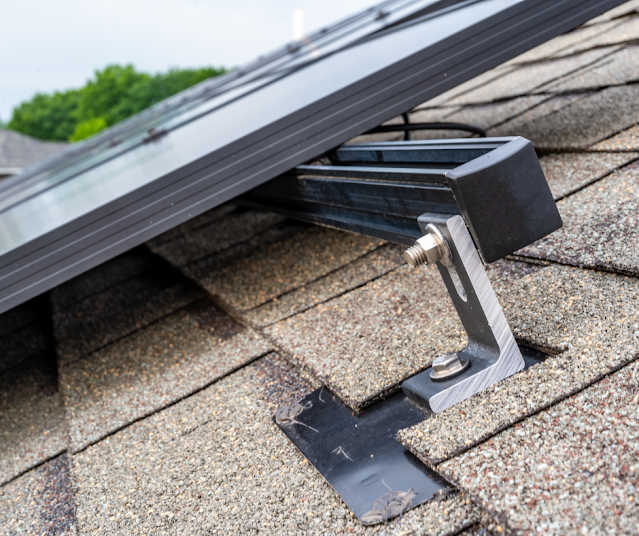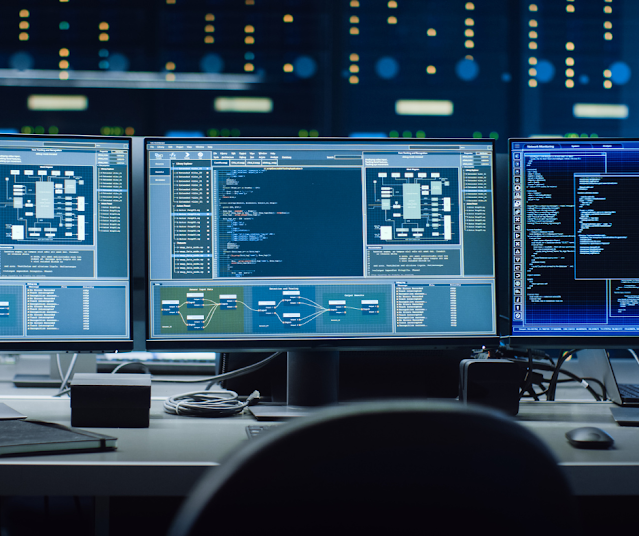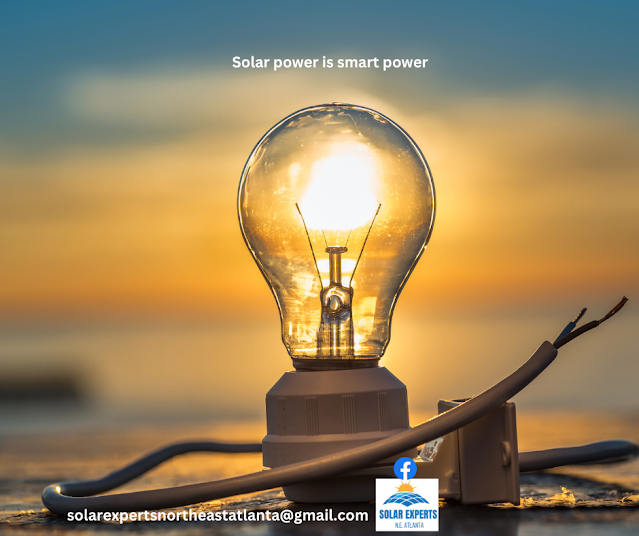Solar 101
An overview of the origins and development of solar power throughout time.
If you're interested in reaping the benefits of solar power, there are three primary scales at which solar panels can be installed: residential, commercial, and utility. Residential-scale solar is commonly implemented by homeowners through rooftop solar panels or ground-mounted installations on open land. The size of residential solar systems typically ranges between 5 and 20 kilowatts (kW), depending on the home's dimensions.
On the other hand, commercial solar projects are typically larger in scale compared to residential installations. Although their size and cost can vary significantly, commercial-scale solar arrays serve the purpose of providing on-site solar power to businesses and nonprofit organizations.
Utility-scale solar projects, on the other hand, are typically extensive solar power plants with a capacity of several megawatts (MW). These installations aim to supply solar energy to a large number of utility customers.
For individuals who may not be able to install solar panels on their property due to financial constraints or other reasons, community solar offers a viable alternative. Community solar farms are constructed in centralized locations, allowing subscribers such as homeowners, renters, businesses, and nonprofits to participate in a shared solar project and enjoy the benefits of solar power without the need for individual panel installation.
How do solar panels work?
A solar panel, also called a solar module, comprises silicon cells, a metal frame, a glass casing, and wiring for electric current transfer. Silicon, an element with atomic number 14, possesses conductive properties that enable the absorption and conversion of sunlight into usable electricity. When sunlight strikes a silicon cell, it initiates the movement of electrons within the silicon, leading to the generation of an electric current. Referred to as the "photovoltaic effect," this phenomenon forms the core principle of solar panel technology.
The process of generating electricity with solar panels can be simplified to the photovoltaic effect. Discovered by Edmond Becquerel in 1839, it represents a characteristic of specific materials, known as semiconductors, enabling the creation of an electric current when exposed to sunlight.
The photovoltaic process involves the following main steps:
- The silicon photovoltaic solar cell absorbs solar radiation.
- When sunlight interacts with the silicon cell, electrons are set in motion, resulting in the flow of electric current.
- Wires capture and channel this direct current (DC) electricity to a solar inverter for conversion into alternating current (AC) electricity.What elements constitute a solar panel system?
Solar panel installations are simple and streamlined systems. They consist of only four essential components, which have no moving parts, making them highly efficient to install and upkeep. The four components of a solar panel system are as follows:
- Solar photovoltaic panels: These panels convert solar energy into electricity.
- Inverters: They convert the direct current (DC) electricity produced by the solar panels into alternating current (AC) electricity.
- Racking and mounting systems: These systems securely attach the solar panels to either the roof or the ground, depending on the installation type.
- Performance monitoring systems: They enable tracking and monitoring of the output and overall health of the solar panels and inverters.
Solar panels are composed of a collection of silicon solar cells that are enclosed by a glass sheet and secured within a metal frame. These cells are equipped with wiring and circuitry, both inside and behind them, which enables the collection of electrical current generated by the solar cells. Each solar panel, also known as a solar module, typically measures around 4 feet by 6 feet and weighs approximately 30 pounds.
While solar panels lack moving parts, their essential component lies within the silicon cells themselves. When sunlight illuminates these cells, it triggers the activation of electrons, leading to the flow of electric current within the cell. The wires within the cells capture this electron flow, which is then combined with the output of other cells within the solar panel. For a more detailed understanding of the functioning of solar panels and solar cells, you can refer to our article on the subject.
Traditionally, solar cells are available in 60 or 72 cell formats. However, many companies are currently exploring innovative approaches to enhance the efficiency of solar cells in converting sunlight into electric current. As a result, you may now encounter "half-cut" solar panels, where each cell is halved, effectively doubling the number of cells on the solar module (e.g., 120 or 144 cells).
click here to learn more about Solar Energy
The solar cells within your solar panels capture the energy from the sun and convert it into direct current (DC) electricity. However, most homes and businesses utilize alternating current (AC) electricity. In order to make the DC electricity usable, inverters are employed to convert it into AC electricity. There are two primary types of solar inverters: string (or centralized) inverters and microinverters. It is also possible to combine power optimizers with string inverters to achieve similar functionality to a microinverter system.
String (or centralized) inverter: A single inverter connects your entire array of solar panels to your electrical panel. String inverters are commonly the more affordable option and have a long-standing history as the most widely used inverter type. Multiple strings of panels can be connected to each inverter. However, if the production of electricity from one panel in a string decreases, such as due to shading, it can temporarily affect the performance of the entire string.
Microinverters: With microinverters, typically one is installed at each solar panel, enabling maximum production from each panel. Microinverters are beneficial when panels experience shading at different times of the day or are not uniformly oriented. The cost of microinverters is usually higher compared to string inverters.
Power optimizers: Systems that incorporate power optimizers combine aspects of both microinverters and string inverters. Like microinverters, power optimizers are installed at each panel. However, instead of directly converting DC electricity to AC, the optimizers condition the DC electricity before transmitting it to a centralized inverter. Power optimizers perform well when one or more panels are shaded or have varying orientations. They generally have a higher cost compared to string inverters but are less expensive than microinverter systems.
Solar racking and mounting systems are the hardware components responsible for securing your solar panels to either your roof or the ground.
For optimal performance, solar panels should ideally face south and be installed at an angle ranging from 30 to 45 degrees, depending on your distance from the equator. Panels facing east or west, with a pitch angle of five degrees or more, will still function effectively but may generate 10 to 20 percent less electricity compared to panels installed under ideal conditions. In residential solar installations, most roof-mounted systems use "lie-flat" configurations, aligning the pitch of the solar panels with that of the roof. However, in certain cases, racking can be used to tilt or position the panels at an angle that maximizes sun exposure.
There are two main types of mounts: fixed mounts, where the panels remain stationary, and tracking mounts, which enable the panels to follow the movement of the sun throughout the day (single-axis track mounts) and across different seasons (dual-axis track mounts). Tracker mounts are typically suitable for ground-mounted solar installations.
Performance monitoring systems offer detailed information about the operation of your solar panel system, allowing you to closely monitor its performance. With a monitoring system in place, you can measure and track the amount of electricity generated by your system on an hourly basis.
Most commonly used residential inverters come with production monitoring apps that enable you to monitor the output of your panels. In some cases, the app may also provide consumption monitoring, allowing you to track the overall savings from your solar panel system. It's worth noting that this additional consumption monitoring may involve an additional cost.
By monitoring your solar panel system, you can identify any potential performance issues and take necessary steps to maximize electricity production and financial returns from your solar panel system.
There are two main types of monitoring systems:
On-site monitoring: In this type, the monitoring device is physically installed on your property and records the amount of electricity generated by your system.
Remote monitoring: With remote monitoring, your solar PV system transmits its performance data to a monitoring service that can be accessed online or through a mobile device.
The price of solar energyAs solar efficiency has risen, the price of solar panels has significantly decreased. Over the past decade, the cost of installing solar panels has dropped by more than 70 percent, and numerous experts in the industry anticipate further price reductions in the future.Moreover, depending on your location, there are various rebates and incentives available for solar power that can further reduce its cost. Nationally, the federal Investment Tax Credit (ITC) is a significant incentive accessible to those interested in solar energy, enabling a deduction of 30 percent of the solar array installation cost from federal taxes. However, it is important to note that this incentive is time-limited: in 2033, the federal ITC decreases to 26 percent, and for residential solar installations, it will be completely phased out by 2035. Additionally, many states and utility companies provide additional incentives, such as net metering, which further decrease the expense of solar power.
click here to read more https://solarexpertsnortheastatlanta.com/why-solar/
Solar energy is an example of a renewable energy resource
.png)
.png)
.png)



.png)

Comments
Post a Comment